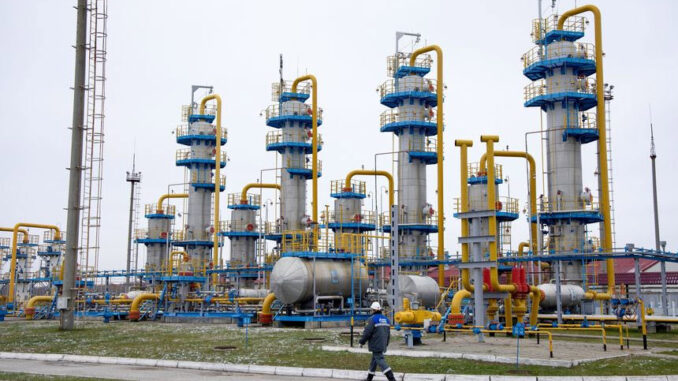
Retirement systems plan to dump Russian holdings but face a lack of buyers and financial-services providers
Pension funds around the world are reviewing their investments in Russia’s energy, banking and mining sectors in the wake of the country’s invasion of Ukraine.
Norway’s largest pension fund, KLP Group; Denmark’s Akademiker Pension; and retirement systems in Connecticut and Rhode Island have announced plans to dump their holdings in Russia. Other U.S. pension funds from New York to California are taking stock of their Russia investments amid debate over whether teachers’ and firefighters’ retirement savings should be tied up in a country waging war on its neighbor.
Selling the holdings, however, is proving complicated. Some financial-services providers are backing away from Russian securities, preventing investors from buying and selling ruble-priced stocks and bonds traded inside and outside Russia. Pension funds hoping to sell holdings that trade on the Moscow Exchange had to shelve those plans after Russia’s central bank shut the exchange down Monday.
Kiran Aziz, head of responsible investments at KLP, said the $70 billion fund has sold some holdings on the London Stock Exchange but hasn’t been able to sell others listed in Moscow.
“The intent to sell is also meant to send a message from [a] responsible-investment point of view, even if you are not able to immediately execute the trade,” Mr. Aziz said.
Pensions in the U.S. and around the world hold Russian stocks in their international equities portfolios, with the holdings making up perhaps 1% of total pension assets. Common investments include Russian lenders Sberbank and VTB Bank, both targets of recent U.S. sanctions, as well as energy giant Gazprom PJSC. U.S.-based companies are working to determine whether they need to take any action to comply with those sanctions, fund officials and advisers said.
Debates over retirement-fund divestment, which gained attention as a protest against South African apartheid in the 1980s, have intensified in an increasingly global investment environment. Over the past year, several major pension funds have increased their target allocation to international equities, which comprised a median of roughly 10% of public-pension-fund portfolios as of December 2021, according to Wilshire Trust Universe Comparison Service.
Many pension funds already steer clear of investments linked to Sudan and Iran. In the U.S.—where the more than $4 trillion in state and local government retirement-plan assets falls well short of the amount needed to pay for promised benefits—some workers and retirees have pushed back, arguing that pension trustees should focus solely on growing their retirement savings.
A November 2016 study of U.S. pension plans by Boston College’s Center for Retirement Research found that average yearly returns in states with divestment requirements were 0.4 percentage points lower than plans in states without such requirements. A 2001 decision by Calpers, the nation’s largest pension fund, not to invest in tobacco has cost the fund a cumulative $3.7 billion since then, according to a consultant’s analysis last year.
Retirement systems divesting from Russia can expect to sell at a significant loss, pension officials and other asset managers said. Russian stocks and bonds held by the $68 billion Maryland State Retirement and Pension System, for example, had a market value of $96 million as of Thursday, down from $197 million a week before, the fund said.
Pension funds willing to take the loss still might have difficulty unloading their positions as countries hand down sanctions and prospective buyers and financial-services providers back away from Russian investments, said David Kotok, chief investment officer at Sarasota-based Cumberland Advisors.
Source – www.wsj.com



